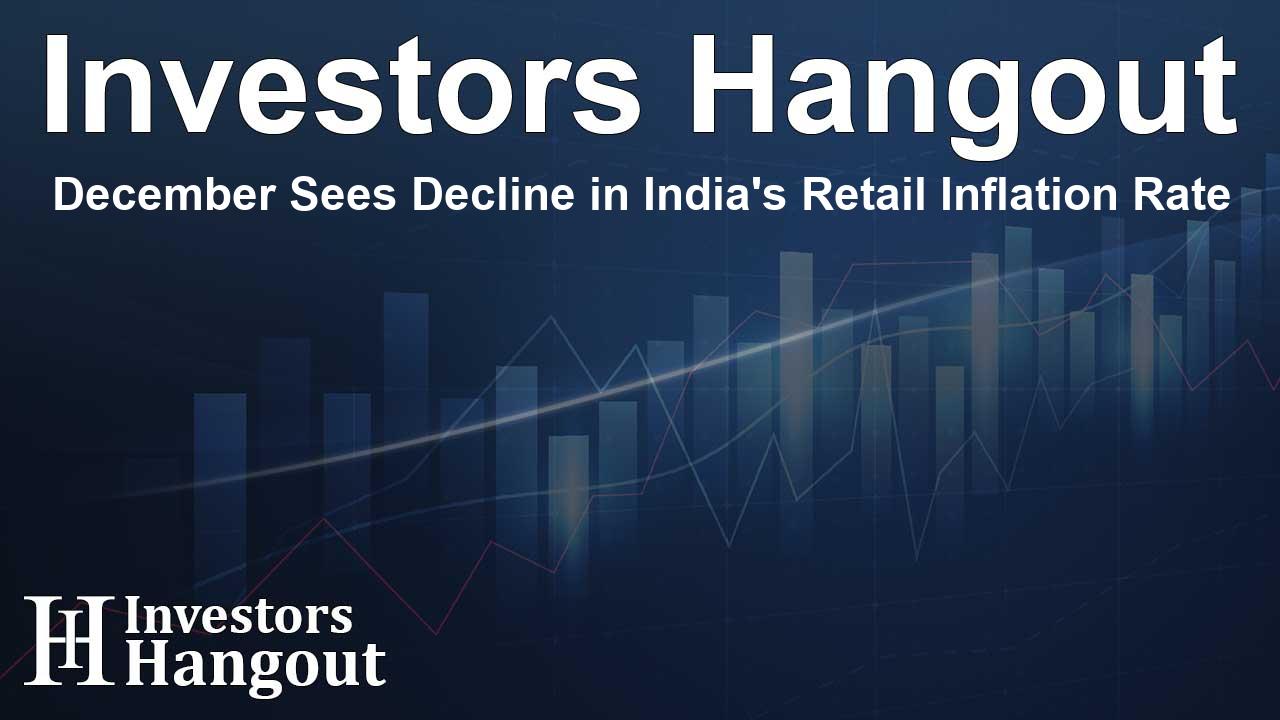December Sees Decline in India's Retail Inflation Rate

Understanding Retail Inflation in India
Recent data indicates that India's annual retail inflation rate decreased to 5.22% in December. This marks a decline from the prior month's rate of 5.48%. Such figures are critical indicators of economic health and consumer purchasing power.
What Influences Retail Inflation?
Several factors contribute to the changes in retail inflation. Volatility in food prices, fluctuations in fuel costs, and broader economic conditions all play significant roles. In December, the government released data that surprised some analysts, who had expected inflation to be around 5.3% based on previous trends.
The Impact of Food Prices
Food prices are a major component of the retail inflation rate. Any shifts in agricultural productivity, seasonal variations, and supply chain disruptions can lead to significant price changes. In December, even with some fluctuations, the overall food inflation may have contributed to a more favorable inflation scenario.
Consumer Behavior and Confidence
When inflation rates decrease, consumer confidence can often rebound. Lower inflation allows consumers to feel more secure about their purchasing power, likely leading to increased spending. As India navigates its economy through various challenges, maintaining consumer confidence is essential.
Looking Ahead: Predictions for Future Inflation
Analysts are closely monitoring future inflation trends as they gauge the impact of government policies and global economic conditions. Predictions suggest that if food and energy prices stabilize, inflation may continue to moderate. The central bank’s policy will also play a crucial role in shaping inflation trajectories.
The Role of Government Policies
Government strategies aimed at controlling inflation usually focus on monetary policy adjustments and fiscal measures. If the government continues to implement measures effectively, it could help to reinforce the downward trend in inflation rates.
Insights from Economic Experts
Economic experts are keeping a watchful eye on these developments. Their insights often help policymakers make informed decisions that promote overall economic stability. This collaborative effort between the government and economists is vital for navigating inflationary pressures.
Frequently Asked Questions
What is the current inflation rate in India?
The current retail inflation rate in India, as of December, is 5.22%.
How does retail inflation affect consumers?
Retail inflation affects consumers by impacting their purchasing power, as it measures how much prices for goods and services have increased.
Why did inflation decrease in December?
The decrease can be attributed to various factors including stable food prices and government measures aimed at controlling inflation.
What are the primary drivers of inflation in India?
The primary drivers include food prices, fuel costs, and overall economic conditions which influence supply and demand dynamics.
How can inflation prediction impact the economy?
Inflation predictions can guide government and financial policies that aim to stabilize or stimulate the economy based on expected consumer behavior and market conditions.
About The Author
Contact Dominic Sanders privately here. Or send an email with ATTN: Dominic Sanders as the subject to contact@investorshangout.com.
About Investors Hangout
Investors Hangout is a leading online stock forum for financial discussion and learning, offering a wide range of free tools and resources. It draws in traders of all levels, who exchange market knowledge, investigate trading tactics, and keep an eye on industry developments in real time. Featuring financial articles, stock message boards, quotes, charts, company profiles, and live news updates. Through cooperative learning and a wealth of informational resources, it helps users from novices creating their first portfolios to experts honing their techniques. Join Investors Hangout today: https://investorshangout.com/
The content of this article is based on factual, publicly available information and does not represent legal, financial, or investment advice. Investors Hangout does not offer financial advice, and the author is not a licensed financial advisor. Consult a qualified advisor before making any financial or investment decisions based on this article. This article should not be considered advice to purchase, sell, or hold any securities or other investments. If any of the material provided here is inaccurate, please contact us for corrections.
